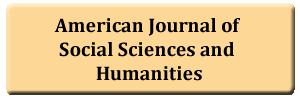A Quasi Experimental Study on the Influence of Blending Learning on College Students' Information Literacy
DOI:
https://doi.org/10.20448/804.6.1.43.49Keywords:
Blending learning, College students, Information literacy, Quasi experiment.Abstract
To explore the influence of blending learning on College Students' information literacy. Class A and B with similar average level of information literacy were selected as the research objects. Class A (106 students) was the experimental class, and class B (131 students) was the control class. During the research period of one semester (four months), the following measures were implemented for the two classes: The control class studied developmental psychology according to the conventional teaching methods and procedures; The experimental class studied developmental psychology according to the requirements and procedures of blending learning. At the beginning and the end of the course, the two classes were assessed with Network Information Literacy and Competence Scale for College Students (NILCS). At the beginning of the course, the total average NILCS scores of two classes were (2.88 ±0.33) and (2.90 ±0.44) respectively, and the difference was not statistically significant (P > 0.05); At the end of course, the total average NILCS scores of experimental class and control class were (3.38 ±0.29) and (2. 97±0.42) respectively, and the difference was statistically significant (P < 0.001). Blending learning can improve the information literacy of college students to a certain extent.



